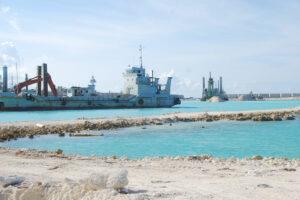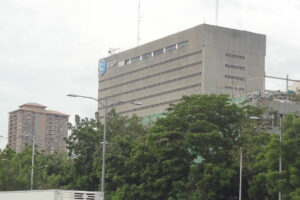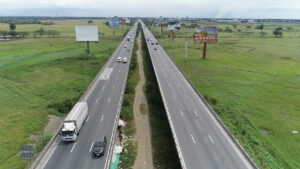Defying China within ASEAN: Pursuing PHL’s balancing policy against Chinese maritime expansion in the West Philippine Sea

Sept. 17, 2010. — REUTERS
The Association of Southeast Asian Nations (ASEAN) is the quintessential intergovernmental organization catering to its member-states’ national interests. It has no enforcement mechanisms. It relies primarily on the relative interpretations of its flexible and ambiguous rules and norms based on annual consultations and non-intervention in each member state’s domestic affairs. Consequently, the ASEAN is prone to institutional drift, making it vulnerable to its member states’ foreign policy agendas that can circumvent potential veto players.
Despite its structural and institutional weaknesses as a regional organization, member-states still view ASEAN as expedient in protecting and advancing their national interests in a changing Indo-Pacific region. This is the case of the Philippines as it changed its foreign policy objectives on the South China Sea imbroglio.
During the 18th East Asian Summit last September in Jakarta, Indonesia, Philippine President Ferdinand Marcos, Jr. raised the issue of China’s violation of the rules-based international order in the South China Sea. He warned of the rising tension in the disputed waters that might spiral into an armed conflict. During his intervention at the summit meeting, he said, “We must not allow tension in the South China Sea to escalate further.” Without mentioning China, he added, “the Philippine government is concerned over consistent (Chinese) actions that violate obligations under international law, including the 1982 UNCLOS (United Nations Conventions of the Law of the Sea) and the DoC (Declaration of the Code of Conduct).”
PURSUING THE APPEASEMENT POLICY IN ASEANPresident Marcos’ direct criticism of Chinese behavior in the South China Sea dispute during the 43rd ASEAN Summit in September 2023 was in total contrast to how his predecessor, President Rodrigo Duterte, prevented any criticism of China when the Philippines hosted the 30th ASEAN summit in 2017.
President Duterte, as the summit’s chairperson at the time, avoided any adversarial statements directed at China. He reduced and diluted any references to the South China Sea dispute in the Chairman’s statement. He ensured that the chairman’s communiqué did not include any reference to Chinese island-building and weapons deployment on the reclaimed land features nor touch on the ruling that declared China’s excessive claim in the South China Sea a violation of international law.
The Duterte administration’s appeasement policy toward China included his administration’s decision to set aside the July 12, 2016 arbitral ruling despite the ruling having rendered China’s historical claims to sovereignty without any solid legal foundation. This prevented ASEAN from having a remedy for legally resolving the South China Sea dispute.
The Duterte administration’s appeasing behavior toward China during the 2017 ASEAN summit meetings was supposed to have created a magnetic field that firmly pulled the entire regional association towards Beijing.
DEFYING CHINA IN ASEANIn contrast to his predecessor, President Marcos Jr. pursued his diplomatic agenda of challenging China’s expansive claim in the South China Sea at the 43rd ASEAN Summit in Jakarta. In his intervention at the 18th East Asian Summit, he stated the Philippines’ concern over consistent actions that are violations of obligations under international law, including the 1982 UNCLOS and under the ASEAN-China Declaration on the Conduct of Parties in the South China Sea. He raised the need for all parties to exercise self-restraint and refrain from unilateral and assertive activities that would increase regional tension, misunderstanding, and miscalculation in the South China Sea.
He warned of the dangerous use of Coast Guard and maritime militia vessels, and the illegal, unreported, unregulated fishing and militarization of reclaimed features in the South China Sea. In direct criticism of Chinese expansion, he also warned against hegemonic ambition in the maritime area. President Marcos Jr. also rejected China’s misleading narrative that framed the disputes solely through the lens of strategic competition between two powerful countries, the United States and China.
In comparison, Chinese Foreign Minister Wang Yi, in a speech to an Indonesian think tank in September 2023, blamed an unnamed “backstage manipulator” for preventing consensus between China and ASEAN on the South China Sea and accused “individual external forces” of “sowing discord in the region.”
At the 43rd ASEAN Summit, President Marcos Jr. stated: “as tension and mistrust between the great powers escalate, so too does the prospect of miscalculation that threatens to engulf the region, with severe consequences for all of us.” He declared that the Philippines would continue supporting the freedom of navigation, overflight, and the rules-based maritime order in the South China Sea.
CHALLENGING ASEAN’S COMPLICITYDuring the ASEAN Foreign Ministers Meeting, the Philippines did not propose a joint statement on the South China Sea. This stemmed from Manila’s recognition of the difficulty of generating a consensus on territorial disputes which only affect the maritime Southeast Asian states, not the entire ASEAN.
In 2024, the Philippines must persevere in raising China’s naval expansion in the South China Sea at ASEAN summits and other ASEAN-related events in Laos. This is in the expectation that the region’s security landscape will become more fluid and potentially dangerous, considering China’s coercive behavior in the South China Sea, the Taiwan Straits, and the East China Sea.
In an increasingly multipolar region, pursuing a policy of challenging China’s expansionism will guide the Philippines to steer the course of its foreign and security strategy. As a middle power, it should move from a small-state narrative to one focused on active engagements with like-minded states inside and outside ASEAN.
Hopefully, some ASEAN member states will break their deafening silence on China’s maritime expansion in the South China Sea in 2026 when the Philippines, under President Marcos Jr., becomes chair of ASEAN. These ASEAN member states, led by Manila, will impress upon Beijing that this regional organization will not be complicit in its efforts to undermine the rules-based maritime order in the Indo-Pacific region.
Dr. Renato Cruz De Castro is a trustee and convenor of the National Security and East Asian Affairs Program of the Stratbase ADR Institute.




